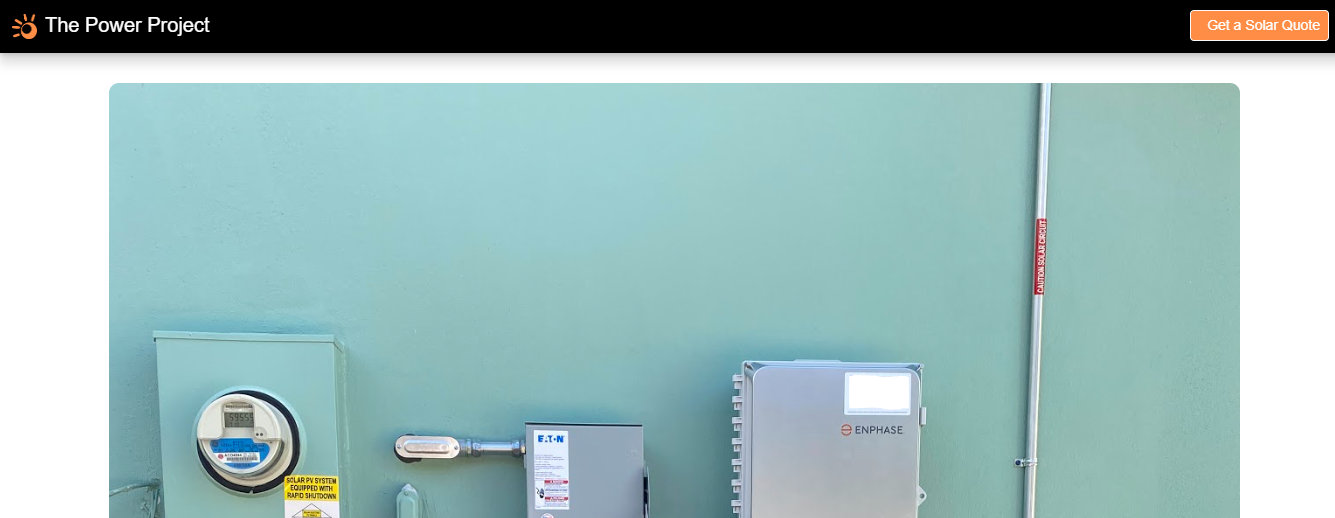
Choosing between solaredge vs enphase for your 2023 solar panel system? Our experts analyze these popular solar inverters to help you make the right choice. Learn about their features, performance, warranties, and benefits.
Are you considering harnessing the power of the sun to generate electricity for your home in 2023? Solar panel systems have become an increasingly attractive option for homeowners seeking to reduce their carbon footprint and save on energy bills. When it comes to solar inverters, two names consistently rise to the top: SolarEdge and enphase vs solaredge. In this article, we'll delve into a comprehensive comparison of SolarEdge inverters and Enphase micro-inverters to help you make an informed decision for your home solar system.
SolarEdge vs. Enphase: Understanding the Basics
Before we dive into the nitty-gritty details, let's establish a fundamental understanding of what SolarEdge and Enphase inverters are and what they do. Both serve the crucial role of converting the direct current (DC) electricity generated by your solar panels into the alternating current (AC) electricity that powers your home. However, they do so with some key distinctions that can significantly impact your choice.
One of the most notable differences lies in their design and installation process. SolarEdge inverters are central string inverters, meaning they are placed in a central location and are responsible for converting the electricity produced collectively by all the solar panels in your system. In contrast, Enphase micro-inverters are attached to the back of each individual solar panel, converting the electricity produced by that specific panel. This individualized approach allows Enphase micro-inverters to optimize the performance of each panel, ensuring that shading or other factors affecting one panel won't affect the entire system's performance.
Efficiency and Cost Considerations
Efficiency is a critical factor to consider when comparing solar inverters. Central string inverters like SolarEdge tend to be more efficient at converting DC electricity to AC electricity due to their ability to handle larger volumes of electricity simultaneously. Additionally, central inverters often offer cost savings as they require fewer components and less installation labor.
Enphase micro-inverters, while providing individual panel optimization, may not achieve the same efficiency levels as central inverters. However, they make up for this by ensuring that the performance of one panel won't compromise the entire system's output. Thus, your choice may depend on your specific performance and budgetary priorities.
Monitoring Capabilities
Both SolarEdge inverters and Enphase micro-inverters offer monitoring capabilities through online and mobile apps. These monitoring systems provide real-time insights into your system's performance and energy production. Additionally, they enable you to track the performance of each individual solar panel.
The SolarEdge monitoring app boasts comprehensive system-level monitoring and analysis tools, giving homeowners detailed insights into their solar energy production. Enphase, on the other hand, provides a user-friendly interface for monitoring individual panels, allowing for precise diagnostics if issues arise.
In conclusion, the choice between SolarEdge and Enphase solar inverters ultimately depends on your specific needs, budget, and preferences. While SolarEdge excels in efficiency and cost-effectiveness, Enphase shines in individual panel optimization and ease of diagnostics. Whichever option you choose, both brands offer reliable solutions for harnessing the power of the sun.
If you want to learn more about SolarEdge and Enphase inverters or explore additional resources on solar power, visit our website at [Website]. Our team of solar power experts is here to assist you in making the right choice for your home solar system.
For any inquiries or assistance, don't hesitate to contact us:
Contact Information:
Email: support@thepowerproject.com
Phone: (844) 566-6352

0 Comments